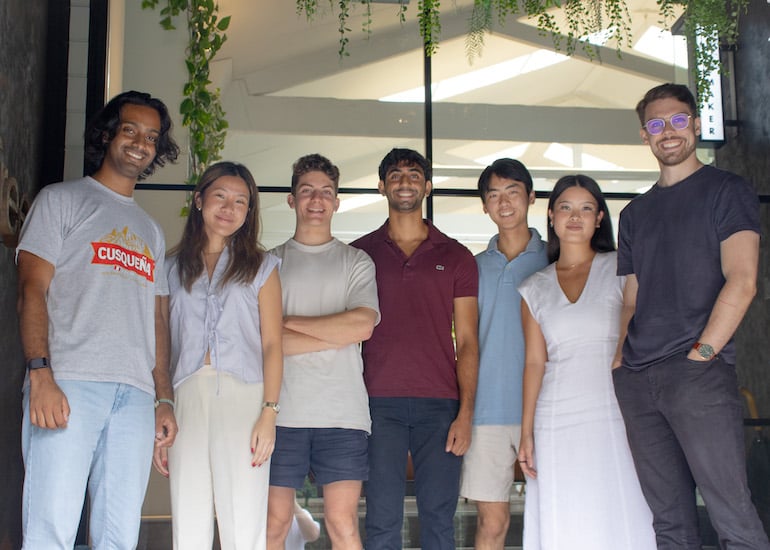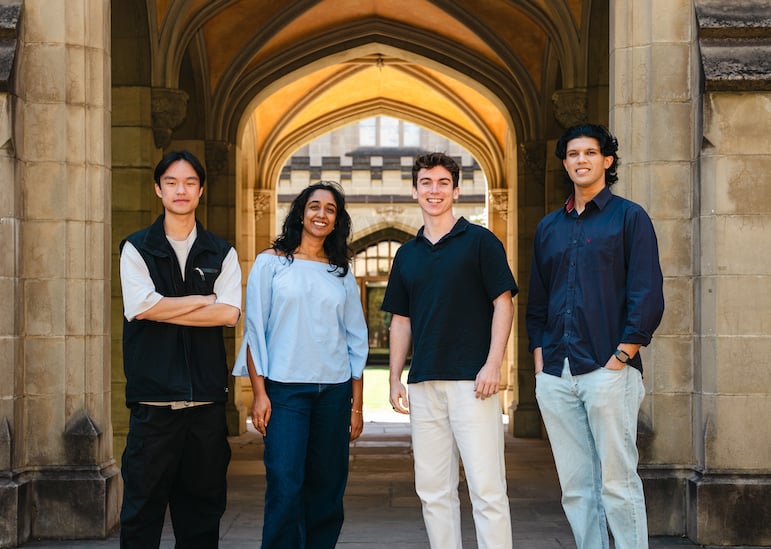University students are increasingly turning to entrepreneurship, with student-founded startups raising more than $1.2 billion since 2012.
And now that investment is set to escalate dramatically with the launch of Australia’s first student-run venture capital fund.
NextGen Ventures, which launches this week, has taken a deep dive into the data around VC and student founders, charting their success and the rise of entrepreneurialism in the tertiary sector.
The NextGen Ventures report concluded that the number of university students wanting to become founders today has risen three-fold on a decade ago.
At University of Technology Sydney, where Murray Hurps runs UTS Startups, with its hub on one of the city’s busiest streets, an astonishing 57% of incoming students say they want to pursue entrepreneurship.
The report documents 65 student-founded startups being-backed since 2013, collectively raising over $1.2 billion. They include Atlassian – now worth more than US$50 billion – and more recent tech unicorn Immutable, as well as the medtechs harrison.ai, and HealthMatch.
NextGen Ventures cofounder Mitchell Hughes said they wanted evidence of the importance of student founders to educate Australia’s startup ecosystem on their potential and start a conversation about how the industry can better support them.
“The next unicorn is being born somewhere on campus as we speak, and I couldn’t be more excited for NextGen Ventures to find it before anyone else, and give it the support it truly needs,” he said.
Chris Gillings, from Cut Through Venture, which compiles the annual report of VC investment in Australia, student founders have already established a track record for success.
“These youthful founders tend to question established systems, challenge the norm, and adopt new technologies, leading to innovative perspectives that often elude their more experienced peers,” he said.
While there’s been a growing focus on commercialising university research in recent years, it’s not all about PhDs turning decades of their findings into deep tech startups. Undergraduates represent 84% of student founders, exceeding the approximate 65% share of university enrolments.
What’s clear from the NextGen Ventures analysis is that University of New South Wales – home to the celebrated UNSW Founders – is the market leader, as the birthplace of 24% of venture-backed student founders— 21 in total – 19 men and two women. The universities of Melbourne and Sydney were the only others to claim more than 10 student founders – 16 and 13 respectively.
The most startups funded were focused on climate tech, with eight startups having collectively raised $32 million. Immutable’s success in raising meant blockchain and Web3 received the most funding, $387m.
But the NextGen report makes it clear there’s a problem on the investment side with just 8% of Australian VCs says they “somewhat agree” that the industry adequately understands the funding requirements of student startups.
Among tier one investor Blackbird backed the most student-founded startups at nine, including rounds for Syenta and Startmate alumni Aquila.
Galileo Ventures focuses on emerging founders, and is also a frequent backer of student-founded startups.
Partner James Alexander said he has seen the growth of student entrepreneurship over the past decade, with the quality of ideas and size of ambition increasing annually.
“Student founders often bring unique tech insight and market perspective which is core to any globally competitive business,” he said.
“We can’t wait to invest in the next Canva or Atlassian being founded by students on an Aussie campus right now.”
But some things don’t change. And that includes the gender disparity in funding for student startups.
Women-only founding teams accounted for 3.9% of the $1.2bn invested – an improvement on the sector more broadly – and 1.8% towards mixed-gendered teams.
The median funding raised in their first round for female-only teams, $600,000 – half of male-only founders figure of $1.2 million. That disparity reflects the broader split in outlined in the State of Startup Funding report.
And 2023 was a low point, with 1% of total funding for student-founded startups going to women, the lowest proportion since 2017.
Mitchel Hughes has that disparity front of mind as NextGen Ventures aims to raise its first fund in 2024.
He believes that better supporting student founders and improving their funding challenges provides Australia’s ecosystem a pathway to becoming a global great.
“Student founders are not just the future of Australia’s startup ecosystem, they’re the very essence of it,” Hughes said.
“We challenge the rest of the industry to your part, and join us in making Australia’s startup ecosystem one where ambitious students want to come, not leave.”’
Download the he NextGen Ventures report here.

The NextGen Ventures Sydney team with Airtree’s Sid Kasbekar – Joanne Lim, Jamyson Gouveros, Yash Kolli, Geoffrey Yang, and Viveca Tang.




















Trending
Daily startup news and insights, delivered to your inbox.